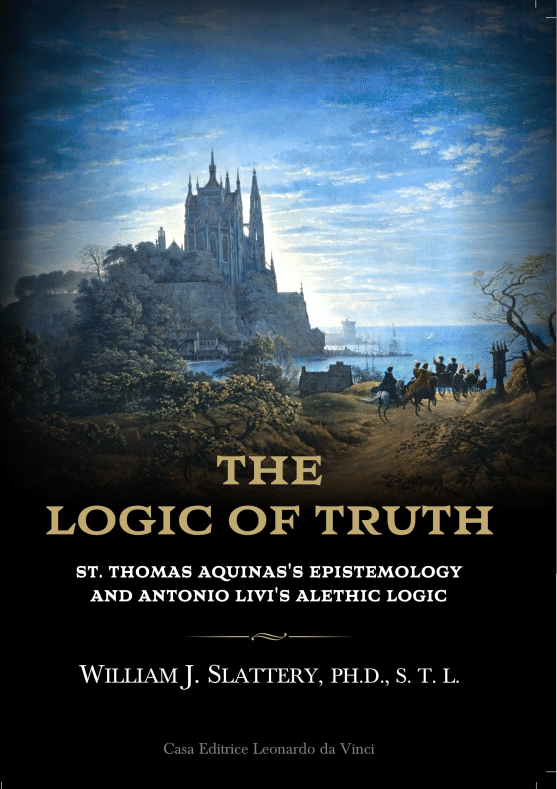For details on The Logic of Truth, see the Amazon website: https://www.amazon.com/Logic-Truth-William-J-Slattery
The “Dictatorship of Relativism”, the dominant culture of the post-modern world with its ideological roots in the Cartesian, Protestant, and French revolutions, is ultimately a revolt against Truth. It argues that man is incapable of knowing reality as reality but merely as physical-mathematical appearance; that unrestrained individualism, checked only by social consensus, is the essence of freedom and the standard for moral decisions; and that the most important truths – those regarding God and eternal salvation – are unknowable.
To defend Truth against this tyranny is to shield the very structure of logic, the meaning of language, the standards of beauty, the nature of love, and the divinely revealed doctrines of the Catholic Faith.
The Logic of Truth confronts the epistemological foundations on which relativism is built. It achieves this through its presentation of Antonio Livi’s alethic logic in the light of the theory of knowledge of St. Thomas Aquinas. Livi, a disciple of Etienne Gilson and Cornelio Fabro, has created an original alethic logic by undergirding elements of Anglo-American analytic philosophy with the presuppositions of St. Thomas’s metaphysical theory of cognition. The Logic of Truth shows both the coherence of Livi’s logic with St. Thomas’s metaphysical gnoseology as well as the unsurpassed complexity of the latter’s probing of man’s natural ability to grasp reality.
Slattery argues that the combined thought of St. Thomas and Livi is a compelling way to argue for the validity of immediate realism and the existence of absolute truths intrinsic to the structure of the human mode of knowing. Moreover, his conclusions imply the logical incoherence of the philosophies of Descartes, Kant, Hegel, and the anti-realist Transcendental “Thomism” that epistemologically precludes the metaphysics of being and thereby the rational foundations of Catholic theology.

